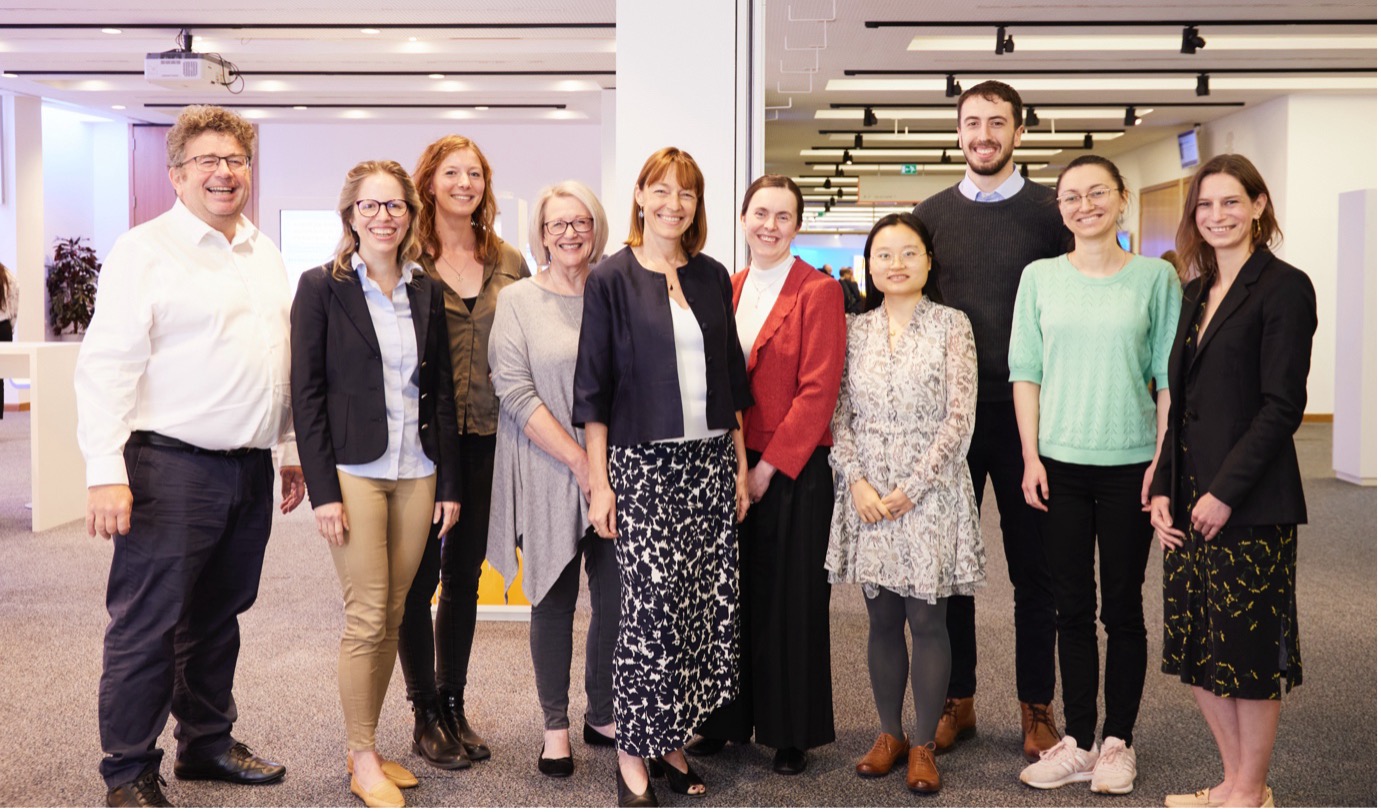
What we do
Our research focus is to understand the causes and complications of liver, endocrine, and metabolic disorders in pregnancy. We aim to explore the underlying mechanisms of disease and use this knowledge to design therapies that will improve outcomes for affected women and their children. The principal diseases of pregnancy we work on are intrahepatic cholestasis of pregnancy, hyperemesis gravidarum, and diabetes mellitus. All these conditions can be associated with severe illness in pregnant women and are often complicated by adverse pregnancy outcomes, including preterm birth and stillbirth. They also influence the future health of affected women and their families later in life after pregnancy has ended. Therefore, our research also focuses on maximising good health across the life course in women and children from pregnancies affected by liver and endocrine/metabolic disease.
Additionally, we are studying the causes of preterm birth through a study of the genetic basis of preterm delivery, using cell culture models to evaluate potential new treatments. Professor Williamson is the Director of the Tommy’s National Research Centre for Preterm Birth.
Our current research
- Intrahepatic Cholestasis of Pregnancy
- Hyperemesis gravidarum
- Diabetes in pregnancy
- Preterm Birth research
- Endocrine and liver disorders in pregnancy
- Early life and post-pregnancy interventions
Our current trials
Team members
Prof Catherine Williamson, Clinical Chair in Women’s Health
 Catherine Williamson, MD, FRCP, FMedSci, is Professor of Women’s Health at Imperial College London. In her clinical practice, she manages women with medical disorders in pregnancy. Her research focuses on the endocrine signals that influence alterations in bile acid, lipid, and glucose homeostasis in normal and pathological pregnancies. She studies the maternal and fetal aetiology, outcomes, and management of intrahepatic cholestasis of pregnancy, gestational diabetes mellitus, and severe hyperemesis gravidarum. Her cholestasis work has resulted in the implementation of genetic screening for biliary transporter mutations by the NHS Genomic Medicine Service, and she is now evaluating the impact of identified mutations on maternal future health. It also established the threshold concentrations of serum bile acids that are associated with an increased risk of spontaneous preterm birth and stillbirth; work that is now cited in many international guidelines. She is leading clinical trials to evaluate bile acid therapies for gestational cholestasis and diabetes. She is Director of the Tommy’s National Centre for Preterm Birth Research, a collaboration between Imperial College, University College, King’s College, Queen Mary University London, and Leeds University that includes the UK Preterm Birth Network, enabling involvement of collaborators throughout the UK. Professor Williamson’s contribution to research has been recognized by the award of Fellowship to the Academy of Medical Sciences and a NIHR Senior Investigator Award. She contributes to the formation of national and international guidelines; current examples include the NICE Primary Hyperparathyroidism and the European Association for the Study of the Liver (EASL) Clinical Practice Guideline on Liver Disease in Pregnancy.
Catherine Williamson, MD, FRCP, FMedSci, is Professor of Women’s Health at Imperial College London. In her clinical practice, she manages women with medical disorders in pregnancy. Her research focuses on the endocrine signals that influence alterations in bile acid, lipid, and glucose homeostasis in normal and pathological pregnancies. She studies the maternal and fetal aetiology, outcomes, and management of intrahepatic cholestasis of pregnancy, gestational diabetes mellitus, and severe hyperemesis gravidarum. Her cholestasis work has resulted in the implementation of genetic screening for biliary transporter mutations by the NHS Genomic Medicine Service, and she is now evaluating the impact of identified mutations on maternal future health. It also established the threshold concentrations of serum bile acids that are associated with an increased risk of spontaneous preterm birth and stillbirth; work that is now cited in many international guidelines. She is leading clinical trials to evaluate bile acid therapies for gestational cholestasis and diabetes. She is Director of the Tommy’s National Centre for Preterm Birth Research, a collaboration between Imperial College, University College, King’s College, Queen Mary University London, and Leeds University that includes the UK Preterm Birth Network, enabling involvement of collaborators throughout the UK. Professor Williamson’s contribution to research has been recognized by the award of Fellowship to the Academy of Medical Sciences and a NIHR Senior Investigator Award. She contributes to the formation of national and international guidelines; current examples include the NICE Primary Hyperparathyroidism and the European Association for the Study of the Liver (EASL) Clinical Practice Guideline on Liver Disease in Pregnancy.
Dr Peter Dixon, Research Fellow
 Dr Peter H. Dixon holds a Ph. D. in Molecular Genetics from Imperial College London and a B. Sc in Physiology and Biochemistry from the University of Reading. He is currently a research fellow in the Maternal and Feral Disease group, led by Prof Catherine Williamson. He worked briefly with Prof Williamson, in 1998 when the group was starting after completing his Ph. D. at Imperial College London. Following post-doctoral research in neurogenetics at UCL, Harvard Medical School and Singapore National Neuroscience Institute he returned to the group in 2004 when it was based at the Institute of Reproductive and Developmental Biology. The group moved to King’s in 2013, based primarily at the Guy’s campus. During this time he maintained strong collaborative links with research groups at ICL together with other groups world-wide and continued to teach iBSc and MSc students ICL, together with KCL MSc students. Following the return of the group to Imperial in 2023 he has come back to the IRDB to continue his research into maternal metabolic disease. He has a strong interest in the origins of Egyptian civilisation and has worked on archaeological survey missions (as a photographer) in the Eastern desert as part of a team from the University of Minnesota. He contributed over 100 photographs of pre-dynastic rock art for two volumes of site records, published by BAR. Outside of academia, he is a keen cyclist and snowboarder.
Dr Peter H. Dixon holds a Ph. D. in Molecular Genetics from Imperial College London and a B. Sc in Physiology and Biochemistry from the University of Reading. He is currently a research fellow in the Maternal and Feral Disease group, led by Prof Catherine Williamson. He worked briefly with Prof Williamson, in 1998 when the group was starting after completing his Ph. D. at Imperial College London. Following post-doctoral research in neurogenetics at UCL, Harvard Medical School and Singapore National Neuroscience Institute he returned to the group in 2004 when it was based at the Institute of Reproductive and Developmental Biology. The group moved to King’s in 2013, based primarily at the Guy’s campus. During this time he maintained strong collaborative links with research groups at ICL together with other groups world-wide and continued to teach iBSc and MSc students ICL, together with KCL MSc students. Following the return of the group to Imperial in 2023 he has come back to the IRDB to continue his research into maternal metabolic disease. He has a strong interest in the origins of Egyptian civilisation and has worked on archaeological survey missions (as a photographer) in the Eastern desert as part of a team from the University of Minnesota. He contributed over 100 photographs of pre-dynastic rock art for two volumes of site records, published by BAR. Outside of academia, he is a keen cyclist and snowboarder.
Team members
Josca Mariette Schoonejans, Post Doctoral Research Associate
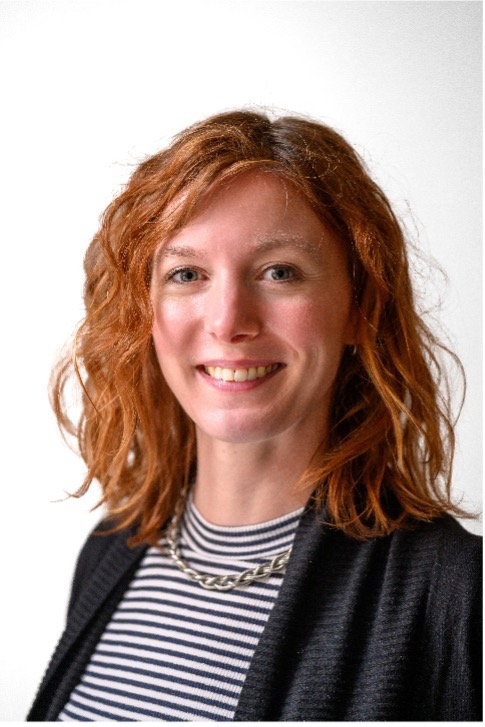 Josca Schoonejans, Ph.D., is a Postdoctoral Research Associate in the group. Her work focuses metabolic disorders in pregnancy, adipose tissue, obesity, and the developmental origins of health and disease. Josca holds a PhD research from the University of Cambridge where she studied the effect of maternal metformin treatment in this model on young and aged offspring, finding age- and sex-specific negative effects on WAT function and cardiometabolic health in metformin-exposed mice. Recently she has moved from offspring to maternal health, studying the role of bile acids in pathogenesis of human GDM. Her work showed that serum bile acids are associated with insulin resistance, and increased in GDM in European (but not in South Asian) women, with potential implications for ethnicity-specific precision medicine. Her current work investigates the role of bile acids and potential therapeutic benefits of ursodeoxycholic acid (UDCA) on the human myometrium as well as developmental programming through paternal cholestasis.
Josca Schoonejans, Ph.D., is a Postdoctoral Research Associate in the group. Her work focuses metabolic disorders in pregnancy, adipose tissue, obesity, and the developmental origins of health and disease. Josca holds a PhD research from the University of Cambridge where she studied the effect of maternal metformin treatment in this model on young and aged offspring, finding age- and sex-specific negative effects on WAT function and cardiometabolic health in metformin-exposed mice. Recently she has moved from offspring to maternal health, studying the role of bile acids in pathogenesis of human GDM. Her work showed that serum bile acids are associated with insulin resistance, and increased in GDM in European (but not in South Asian) women, with potential implications for ethnicity-specific precision medicine. Her current work investigates the role of bile acids and potential therapeutic benefits of ursodeoxycholic acid (UDCA) on the human myometrium as well as developmental programming through paternal cholestasis.
Alice Mitchell, Post Doctoral Research Associate
 Alice Mitchell, Ph.D., is a Postdoctoral Research Associate working with Prof. Catherine Williamson at the Institute of Reproductive Biology, Imperial College London. Her research focuses on the mechanisms underlying gestational diseases including intrahepatic cholestasis of pregnancy and gestational diabetes mellitus. She has been involved with setting up clinical trials for gestational diabetes, with focus on mechanistic sub-studies, and has helped to initiate and coordinate a novel cooling therapy study for children with metabolic dysfunction-associated steatotic liver disease. Her work established the threshold concentration of serum bile acids for diagnosis of intrahepatic cholestasis of pregnancy which has been adopted into the UK Greentop Guidelines. Current projects are focused on the role of lipids and adipose tissue changes in pregnancy and metabolic changes that may impact itch and severity of cholestasis during pregnancy. Alongside her work in cholestasis, Alice is also investigating gut hormone responses of women with gestational diabetes treated with a potential therapeutic, ursodeoxycholic acid (GUARDS trial).
Alice Mitchell, Ph.D., is a Postdoctoral Research Associate working with Prof. Catherine Williamson at the Institute of Reproductive Biology, Imperial College London. Her research focuses on the mechanisms underlying gestational diseases including intrahepatic cholestasis of pregnancy and gestational diabetes mellitus. She has been involved with setting up clinical trials for gestational diabetes, with focus on mechanistic sub-studies, and has helped to initiate and coordinate a novel cooling therapy study for children with metabolic dysfunction-associated steatotic liver disease. Her work established the threshold concentration of serum bile acids for diagnosis of intrahepatic cholestasis of pregnancy which has been adopted into the UK Greentop Guidelines. Current projects are focused on the role of lipids and adipose tissue changes in pregnancy and metabolic changes that may impact itch and severity of cholestasis during pregnancy. Alongside her work in cholestasis, Alice is also investigating gut hormone responses of women with gestational diabetes treated with a potential therapeutic, ursodeoxycholic acid (GUARDS trial).
Team members
Madeleine Reid, PhD Student
 Madeleine Reid is a KCL MRC iCASE DTP student in the Williamson Group, focused on uncovering novel insights into the role of intermittent cold exposure in obesity-related disorders. Their research involves pre-clinical investigations using a mouse model of diet-induced obesity, as well as clinical studies with patients suffering from metabolic dysfunction-associated steatotic liver disease (MASLD). The ultimate objective is to develop a non-invasive therapeutic treatment for patients affected by obesity-associated metabolic consequences.
Madeleine Reid is a KCL MRC iCASE DTP student in the Williamson Group, focused on uncovering novel insights into the role of intermittent cold exposure in obesity-related disorders. Their research involves pre-clinical investigations using a mouse model of diet-induced obesity, as well as clinical studies with patients suffering from metabolic dysfunction-associated steatotic liver disease (MASLD). The ultimate objective is to develop a non-invasive therapeutic treatment for patients affected by obesity-associated metabolic consequences.
Previously, Madeleine worked on metabolism-associated behavioural patterns in zebrafish at the Garvan Institute of Medical Research, explored white adipose tissue organoids at MRC Harwell, and conducted colorectal cancer research at the Wellcome Centre for Human Genetics at Oxford University.
Alexander Bracanovic, PhD Student
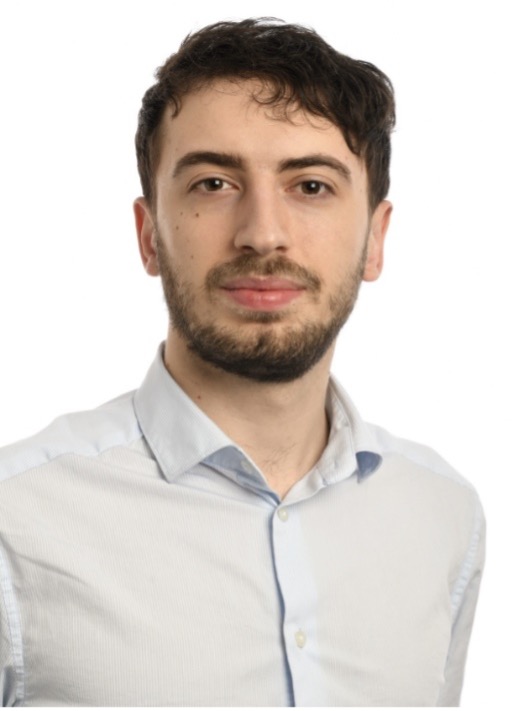 Alexander is a PhD student at Imperial College London and is based at the Institute of Reproductive and Developmental Biology, where he is investigating the genomic determinants of preterm birth. His research aims to investigate common genomic variants which are most prevalent in women who have experienced preterm birth. The analysis of next-generation sequencing data will play a pivotal role in understanding the functional consequences of these common genomic variants. His work will also include participants that are underrepresented in genomic studies, including those from African ethnic ancestries, who display higher than average incidences of preterm birth.
Alexander is a PhD student at Imperial College London and is based at the Institute of Reproductive and Developmental Biology, where he is investigating the genomic determinants of preterm birth. His research aims to investigate common genomic variants which are most prevalent in women who have experienced preterm birth. The analysis of next-generation sequencing data will play a pivotal role in understanding the functional consequences of these common genomic variants. His work will also include participants that are underrepresented in genomic studies, including those from African ethnic ancestries, who display higher than average incidences of preterm birth.
Team members
Caroline Ovadia, Clinical Senior Lecturer
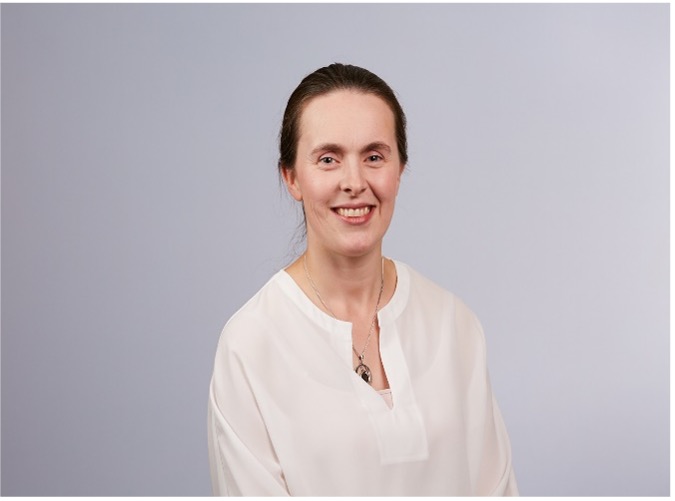 Caroline Ovadia is a Clinical Senior Lecturer at King’s College London and an Honorary Consultant Obstetrician at Guy’s and St Thomas’ NHS Foundation Trust. She has been working with Professor Williamson since 2012, during her time at both Imperial College London and King’s College London. Her research focuses on the impact of maternal metabolic disease on adverse perinatal outcomes, and she has also explored how the maternal gut microbiome may influence cholestatic liver disease in pregnancy. Clinically, she leads the obstetric diabetes and cholestasis services.
Caroline Ovadia is a Clinical Senior Lecturer at King’s College London and an Honorary Consultant Obstetrician at Guy’s and St Thomas’ NHS Foundation Trust. She has been working with Professor Williamson since 2012, during her time at both Imperial College London and King’s College London. Her research focuses on the impact of maternal metabolic disease on adverse perinatal outcomes, and she has also explored how the maternal gut microbiome may influence cholestatic liver disease in pregnancy. Clinically, she leads the obstetric diabetes and cholestasis services.
Jenny Chambers, Clinical Trial Coordinator
 Jenny Chambers has been working as a clinical research practitioner within the team since 2005, specializing in intrahepatic cholestasis of pregnancy (ICP), a condition she has personally experienced. Her role involves setting up studies, implementing recruitment, overseeing governance, and assisting in the lab with sample processing as needed. She is also the Founder of the charity ICP Support and stepped down as CEO in March 2024 to focus more on research and to carve out some personal time.
Jenny Chambers has been working as a clinical research practitioner within the team since 2005, specializing in intrahepatic cholestasis of pregnancy (ICP), a condition she has personally experienced. Her role involves setting up studies, implementing recruitment, overseeing governance, and assisting in the lab with sample processing as needed. She is also the Founder of the charity ICP Support and stepped down as CEO in March 2024 to focus more on research and to carve out some personal time.
Team members
Anna Yang, Postdoctoral Clinical Fellow
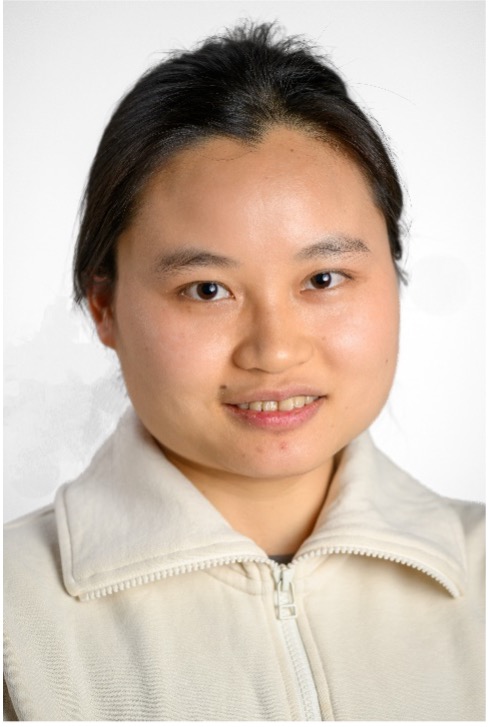 Xi (Anna) Yang is a visiting researcher in the group, focusing on two genomic projects. The first project examines the effect of common and rare variants on intrahepatic cholestasis of pregnancy (ICP), aiming to understand the extent to which these variants contribute to the heritability of ICP. The second project investigates the genetic determinants of hyperemesis gravidarum, a severe form of nausea and vomiting during pregnancy, with the goal of identifying specific genetic variants and mutations that influence susceptibility and severity.
Xi (Anna) Yang is a visiting researcher in the group, focusing on two genomic projects. The first project examines the effect of common and rare variants on intrahepatic cholestasis of pregnancy (ICP), aiming to understand the extent to which these variants contribute to the heritability of ICP. The second project investigates the genetic determinants of hyperemesis gravidarum, a severe form of nausea and vomiting during pregnancy, with the goal of identifying specific genetic variants and mutations that influence susceptibility and severity.
Tom Hewitt, Centre Manager

Tom Hewitt is the Centre Manager for the Tommy’s National Centre for Preterm Birth Research at Imperial College London. Launched in March 2024, the Tommy’s Centre brings together experts in the field of preterm birth from five leading higher education institutions and is funded by Tommy’s, the pregnancy and baby charity.
If you are interested in learning more about the Tommy’s Centre, please visit our websites (Imperial, Tommy’s) for more information.
Line 6
Arek Ciechacki, Personal Assistant and Centre Administrator
 Arek is the Personal Assistant to Catherine Williamson, the Clinical Chair in Women’s Health, and also plays a pivotal role as the Centre Administrator for the Women’s Health Research Centre at Imperial College London. Since joining the institution in 2022, Arek has contributed significantly across various departments. He began his journey as a temporary assistant in Brain Sciences, later transitioning to a Research Group Administrator role at the Data Science Institute, before eventually supporting the Department of Metabolism, Digestion, and Reproduction. Throughout his tenure, Arek has been a key figure behind the scenes, ensuring the smooth and efficient operation of Imperial’s essential functions.
Arek is the Personal Assistant to Catherine Williamson, the Clinical Chair in Women’s Health, and also plays a pivotal role as the Centre Administrator for the Women’s Health Research Centre at Imperial College London. Since joining the institution in 2022, Arek has contributed significantly across various departments. He began his journey as a temporary assistant in Brain Sciences, later transitioning to a Research Group Administrator role at the Data Science Institute, before eventually supporting the Department of Metabolism, Digestion, and Reproduction. Throughout his tenure, Arek has been a key figure behind the scenes, ensuring the smooth and efficient operation of Imperial’s essential functions.
Julia Zöllner, NIHR Academic Clinical Lecturer, Obstetrician
 Julia Zöllner is an NIHR Academic Clinical Lecturer and Obstetrician based at UCL who is passionate about leveraging genomics for the early detection and personalised management of gestational syndromes. She is committed to bridging ethnic disparities in genomic medicine. In collaboration with Professor Catherine Williamson and Dr. Peter Dixon at Imperial College London, Julia is actively investigating the genetic causes of intrahepatic cholestasis of pregnancy. Her work focuses on using genetic tools for the prediction and prevention of this condition. Additionally, she collaborates with the group on research involving preterm birth and gestational length.
Julia Zöllner is an NIHR Academic Clinical Lecturer and Obstetrician based at UCL who is passionate about leveraging genomics for the early detection and personalised management of gestational syndromes. She is committed to bridging ethnic disparities in genomic medicine. In collaboration with Professor Catherine Williamson and Dr. Peter Dixon at Imperial College London, Julia is actively investigating the genetic causes of intrahepatic cholestasis of pregnancy. Her work focuses on using genetic tools for the prediction and prevention of this condition. Additionally, she collaborates with the group on research involving preterm birth and gestational length.
Line 7
Nadejda Captaina
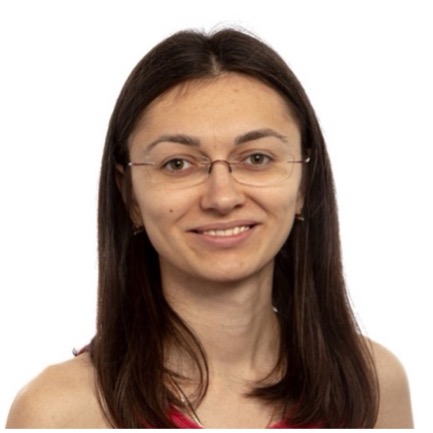 Nadejda is an Academic Foundation trainee in the East of England region. Her work is split between clinical commitments in the Accident and Emergency Department, and academic work in the field of ICP. She is also passionate about teaching, having supervised undergraduate student doctors from Cambridge, Anglia Ruskin, Norwich, and Barts and The London Medical Schools. She is also a part-time student on the PG Cert in Medical and Healthcare Education course.
Nadejda is an Academic Foundation trainee in the East of England region. Her work is split between clinical commitments in the Accident and Emergency Department, and academic work in the field of ICP. She is also passionate about teaching, having supervised undergraduate student doctors from Cambridge, Anglia Ruskin, Norwich, and Barts and The London Medical Schools. She is also a part-time student on the PG Cert in Medical and Healthcare Education course.
Current academic projects include:
1. Designing a core outcome set for studies of ICP
2. When should we recommend patients with uncomplicated Gestational Diabetes Mellitus give birth?
3. PRECIOUS study: Pregnancy-Related Evaluation of Cholestasis in The United Kingdom: A National Investigation and Surveillance Audit.
Melanie Nana
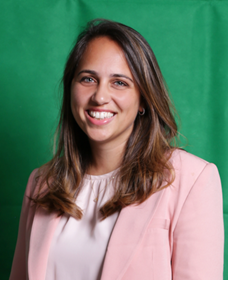 Melanie Nana is a final year endocrinology and general medical registrar with a national training in the Wales deanery. In 2020 she went out of training to complete the obstetric medicine fellowship at St Thomas’ Hospital; during that time she completed the RCP credential in obstetric medicine.
Melanie Nana is a final year endocrinology and general medical registrar with a national training in the Wales deanery. In 2020 she went out of training to complete the obstetric medicine fellowship at St Thomas’ Hospital; during that time she completed the RCP credential in obstetric medicine.
She is currently undertaking an NIHR Research Training Fellowship studying the mechanisms underpinning the neurocognitive and metabolic consequences of children born to women with severe Hyperemesis Gravidarum at King’s College London, supervised by Professor Catherine Williamson. Her other interests include liver disease and pregnancy.
Melanie has several publications relating to obstetric medicine including the largest study exploring the lived-experience of women with hyperemesis gravidarum. She has authored a BMJ ‘State of the Art Review’ on COVID-19 and has published a chapter on pituitary and adrenal disease in pregnancy in EndoText. She is a co-author of the European Guideline for Liver Disease and Pregnancy the RCOG national guidance on Hyperemesis Gravidarum and the upcoming International Federation of Gynaecology and Obstetrics guidelines on Liver Disease and Pregnancy and Cancer and Pregnancy. She is passionate about improving the care of women with HG in the UK and is working with the Department of Health policy department to improve access to HG care for all women and is a medical advisor for the charity Pregnancy Sickness Support.








